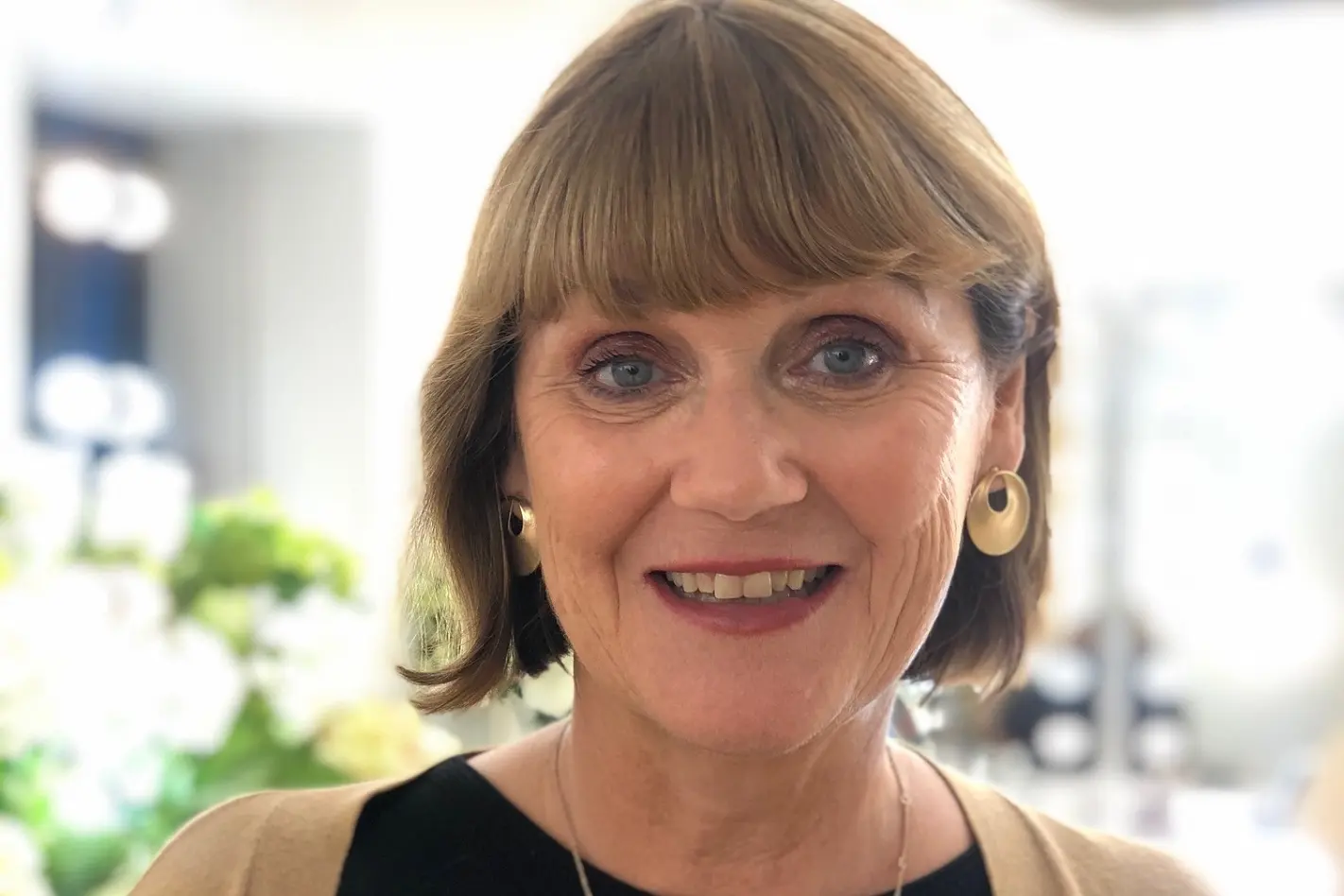8th December 2020
To bring National Grief Awareness Week #NGAW20 to a close, a Voices blog by Gill Martin, a health visitor and who is also a Cruse Volunteer.

Gill Martin, health visitor and Cruse Volunteer
Thank you for asking me to contribute to Voices at the end of #NGAW20.
Grief and loss affect us all and is more apparent during this pandemic period. Restrictions to families’ supportive function and funeral rites have taken their toll.
How we grieve is affected by our attachment to the person we have lost and the nature of their death.
As health visitors, we will work with the bereaved at some point, though miscarriage, baby or child loss, or the death of a family member or friend.
Two years ago whilst in my role of Specialist Health Visitor in Perinatal and Infant Mental Health, I embarked on training as a bereavement volunteer with my local branch of Cruse. The training is short but intense and has led me to support many on a 1:1 basis. The transferable skills I’ve acquired through my career as a health visitor have helped greatly.
Although initially hesitant about the switch from face-to-face to telephone calls and Zoom with my clients, I think we have all in time adapted to this new medium and feedback has been very good.
Earlier this year, as the death rates rose in the UK, the charity asked if we would be able to work additionally on the National CRUSE Helpline and I’ve supported two shifts a week since June.
Callers from all over the UK ask for emotional and practical support, signposting to specific charities or for ongoing counselling. Some want to talk straight away, and others may struggle with the words. I have supported more men via the helpline than face-to-face, as I think this less personal contact works with this client group.
Professionals often call on behalf of their client: mental health therapists, employers, carers, nurses, schools, police, and probation to name a few.
I have spoken with parents and grandparents, telling their stories, and sharing their losses. A dad in prison, a young mother living far from her family and some struggling as lone parents. I always ask if they are in touch with their health visitor and I have heard some amazing feedback – so proud of my profession.
Theories of grief have evolved over the years and it is no longer thought that grief goes through a timeline of emotions leading to the bereaved feeling ‘better’. The current theories (Dual Process and Tonkin’s Models) tell us that the loss does not lessen but that our ability to gain some normality back in our lives and grow around our grief does.
Loss through bereavement brings many strong feelings such as anger, guilt and regret but it also affects people physically. Lack of sleep, anxiety, panic attacks and changes to appetite may occur. Understandably bereavement is a risk factor in parental mental ill health.
Having good and bad days is normal. Anniversaries, birthdays, and the memories they evoke, are difficult.
As health visitors, we can listen to our clients’ stories, opening conversations with ‘tell me about your relative’ – using the honed skills we have of listening, empathy and reflection, and asking about their self-care and support systems. We can liaise with GPs and enable continued support for families. Everyone grieves differently and in their own time, and this will happen within family settings. Not everyone will need ongoing support through counselling as time and personal support systems can be enough, although this has been a testing time for family support.
I have found that the ‘Continuing Bonds’ theory helps some families, it validates their loss through connecting with the deceased through daily habits, tasks and rituals. Losing a parent and being a parent is very difficult. One mother I worked with was of Bengali origin and found herself talking more in Bengali at home, singing family lullabies to her baby, and cooking foods for her toddler her mother would have made. This gave her great comfort that her mother was there on her journey through motherhood.
There is help available if you or a family known to you need bereavement support and advice.
Resources
Cruse Bereavement Care website – information on practical matters, bereavement booklets and signposting for specific losses
- Cruse Helpline 0808 808 1677 (England, Wales and N Ireland)
- Cruse Helpline 0808 802 6161 (Scotland)
- Cruse Grief Chat (counselling by text) – 9am-9pm Monday to Friday https://www.cruse.org.uk/get-help/crusechat
Free booklets I may suggest to families: –
- Understanding Bereavement – and how to tell your child
- After the death of someone very close
- When your parent dies: insights for bereaved adult
- Help and hope – For men living with loss
- iHV Parent Tips – Supporting a bereaved child or young person: A guide for parents and carers
- What’s Your Grief – American website with excellent resources and information about Grief Theories

